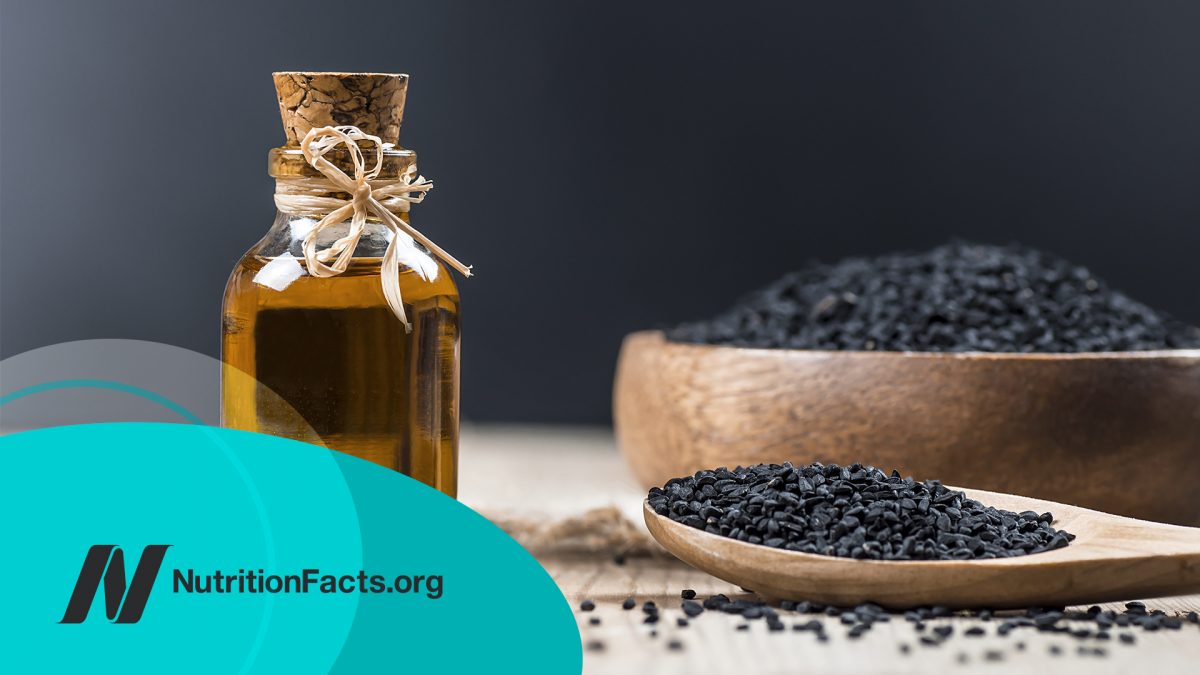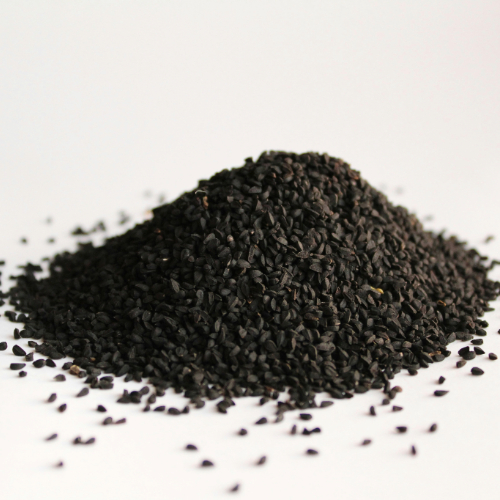
Black Cumin
Black cumin is not actually related to cumin; it’s a member of the buttercup rather than carrot family. Also known as Nigella sativa or simply “black seed,” it’s a common spice whose peppery flavor is popular in Indian and Middle Eastern cuisines, but it’s also been prized for purported medicinal benefits. Described as a “miracle herb,” with mentions going back to the Old Testament (Isaiah 28:25, 27), black cumin was found cached in King Tut’s tomb, and Prophet Muhammad evidently is quoted as saying it could “heal every disease except death.” Only in the last 50 years or so has it been put to the test, though, culminating in more than a thousand papers published in the medical literature.
Daily black cumin consumption has been found in systematic reviews and meta-analyses of randomized controlled trials to significantly improve weight loss, cholesterol, triglycerides, blood pressure, and blood sugar control. Typical doses used in studies are just 1 or 2 g of black cumin a day, which is about a quarter teaspoon. Using such small amounts allows researchers to conduct randomized, double-blind, placebo-controlled trials by putting the whole-food spice into capsules rather than extracting out just a few components.
The spice has also been shown to lower markers of inflammation, such as C-reactive protein, and may have favorable effects on inflammatory conditions, such as asthma, rheumatoid arthritis, and a common cause of hypothyroidism called Hashimoto’s thyroiditis. Black cumin also appears to help get rid of kidney stones and help with the symptoms of menopause. The dose used in most of these studies would cost about three cents a day.
For substantiation of any statements of fact from the peer-reviewed medical literature, please see the associated videos below.
Image Credit: https://unsplash.com/photos/black-powder-on-white-surface-guKZhjmfero?utm_content=creditShareLink&utm_medium=referral&utm_source=unsplash. This image has been modified.
Popular Videos for Black Cumin

All Videos for Black Cumin
-

Answering Your Questions About Cholesterol and Diabetes
I answer some common questions I’ve been asked about cholesterol and diabetes, such as “What is the ideal LDL?” “What’s going on when someone eats healthfully but their glucose is still out of control?”
-

Benefits of Cumin and Saffron for Weight Loss
The spice cumin can work as well as orlistat, the “anal leakage” obesity drug.
-

Benefits of Black Cumin Seed (Nigella Sativa) for Weight Loss
For three cents a day, black cumin may improve cholesterol and triglyceride levels, blood pressure, and blood sugar control, as well as accelerate the loss of body fat.
-

Diet for Hypothyroidism: A Natural Treatment for Hashimoto’s Disease
What were the results of a randomized, double-blind, placebo-controlled trial of a half teaspoon of powdered black cumin a day in Hashimoto’s (autoimmune thyroiditis) patients?
-

Evidence-Based Weight Loss – Live Presentation
In this live presentation, Dr. Greger offers a sneak peek into his book How Not to Diet.
